 Gene therapy is rapidly emerging as one of the most promising fields in medical science. By addressing the root causes of genetic disorders, this revolutionary technology has the potential to transform how we treat diseases. In this article, we’ll explore the current state of gene therapy, its applications, challenges, and what the future holds for this cutting-edge treatment.
Gene therapy is rapidly emerging as one of the most promising fields in medical science. By addressing the root causes of genetic disorders, this revolutionary technology has the potential to transform how we treat diseases. In this article, we’ll explore the current state of gene therapy, its applications, challenges, and what the future holds for this cutting-edge treatment.
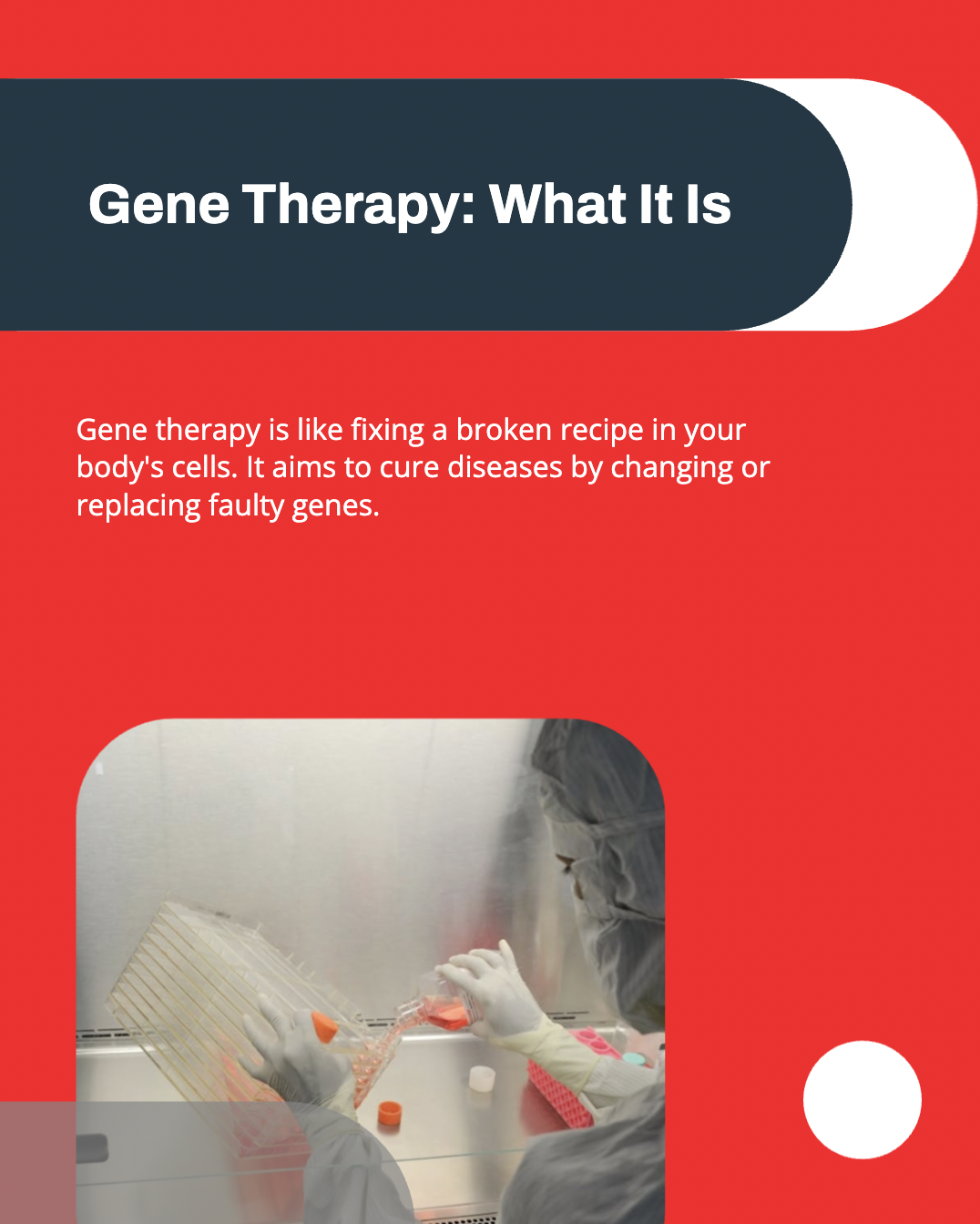

Gene therapy involves modifying silencing or replacing faulty genes to treat or prevent diseases. It focuses on addressing the underlying genetic cause of a condition, rather than just managing its symptoms. This innovative approach offers hope for curing inherited diseases, cancers, and other complex conditions.

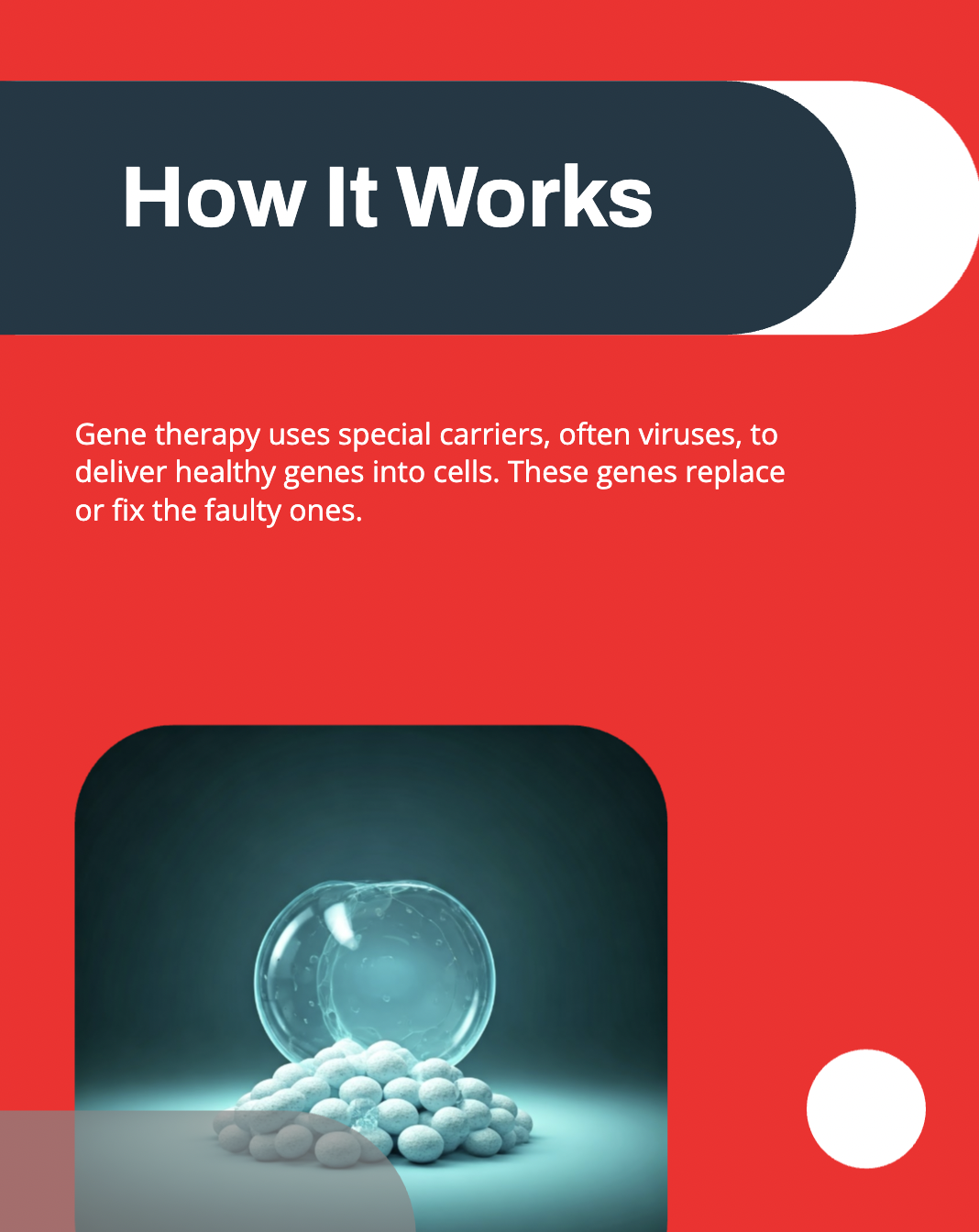
Gene therapy works by introducing a functional gene into a patient’s cells using a vector. Most commonly, these vectors are modified viruses engineered to deliver therapeutic genes safely. Here’s a simplified breakdown of the process:

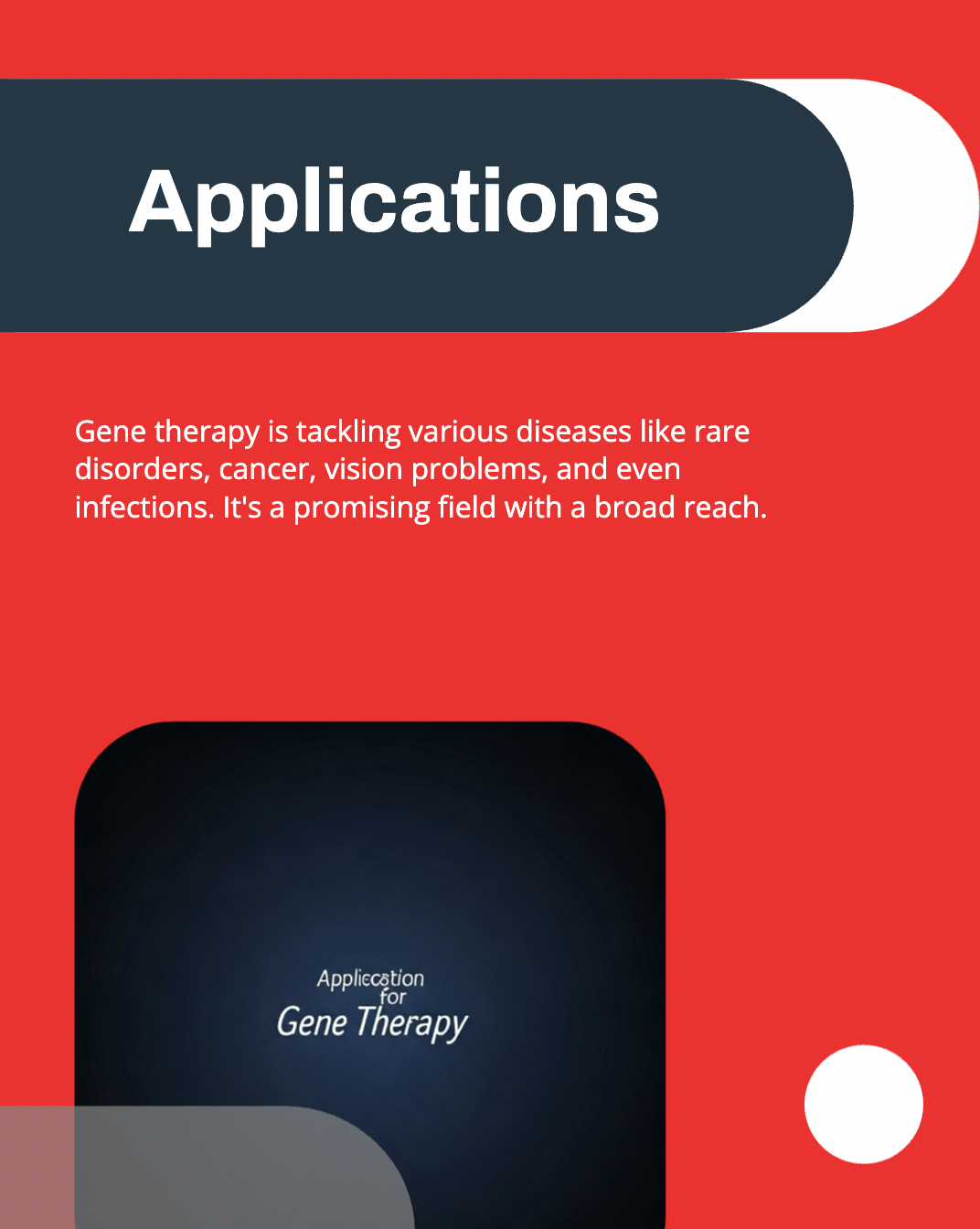
1. Treatment of Rare Genetic Disorders
Gene therapy has shown great promise in treating rare diseases such as:
These therapies aim to provide lasting solutions for conditions that previously had limited treatment options.
2. Fighting Cancer
Gene therapy is being used to enhance the immune system's ability to target and destroy cancer cells. Techniques like CAR-T cell therapy modify a patient’s T-cells to better recognize and attack tumors.
3. Curing Vision Disorders
Innovative treatments are helping restore sight for individuals with genetic vision problems, such as Leber congenital amaurosis.
4. Tackling Infectious Diseases
Gene therapy research includes combating infections like HIV by modifying immune cells to resist the virus.
1. Safety Concerns
The use of viral vectors poses risks, including immune system reactions and unintended genetic changes. Researchers are developing safer delivery methods to minimize these risks.
2. High Costs
Gene therapies are among the most expensive treatments, with some costing over $2 million per patient. The high cost makes widespread access challenging.
3. Ethical Questions
Altering human genes raises ethical concerns, particularly regarding potential misuse, such as for enhancing non-health-related traits (e.g., intelligence or appearance).
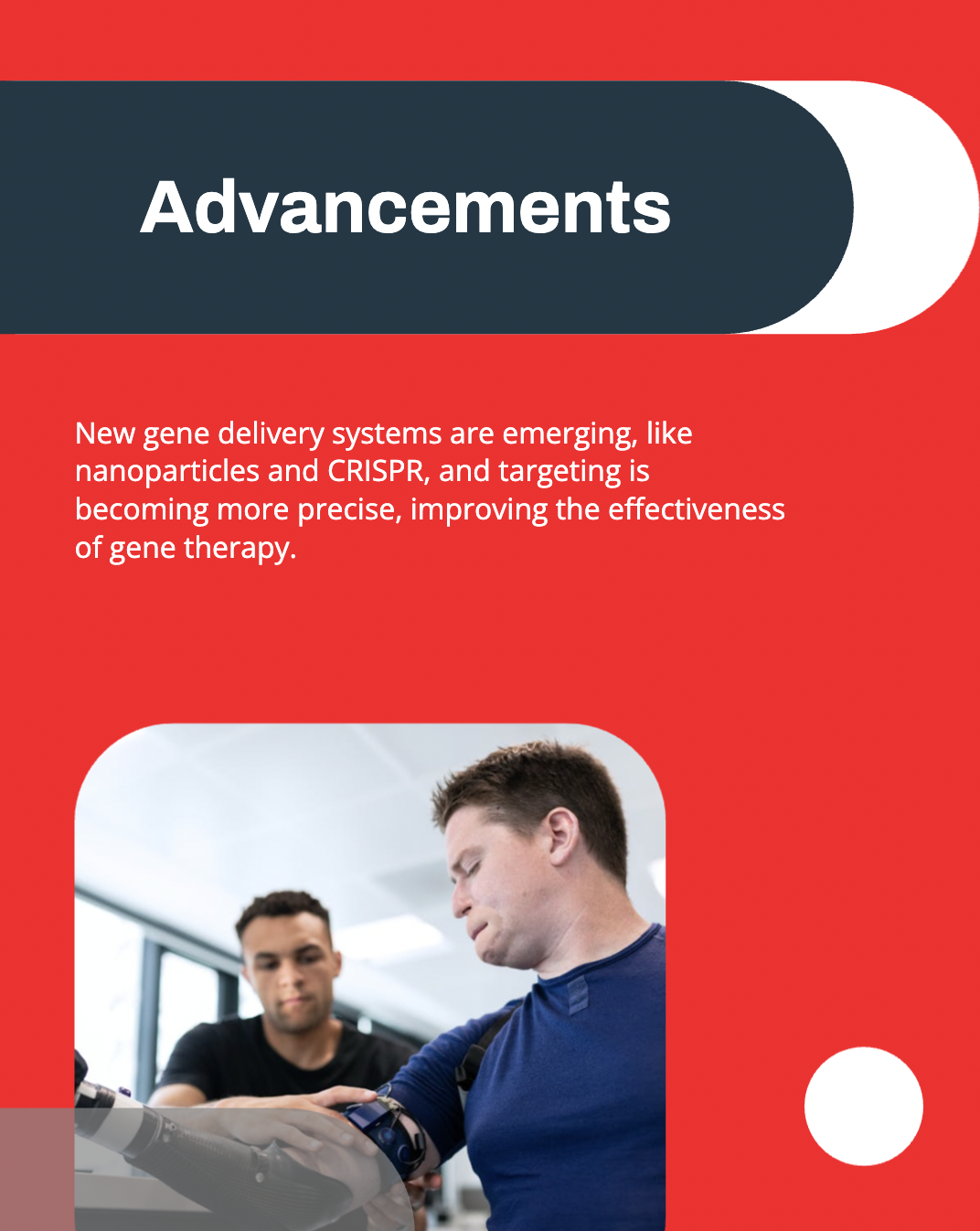

Innovations in delivery systems are critical to the success of gene therapy. Here are the latest advancements:
CRISPR-Cas9 has revolutionized gene editing by enabling precise modifications to DNA sequences. It holds immense potential for treating genetic diseases by directly correcting mutations at their source.
1. FDA-Approved Therapies
Several gene therapies have gained regulatory approval, including:
2. Streamlined Approvals
Regulatory agencies worldwide are working on frameworks to speed up the approval process while ensuring safety.
The future of gene therapy is filled with exciting possibilities:
As gene therapy becomes more advanced, ethical considerations must remain at the forefront. Questions about its use in non-therapeutic settings and potential societal impacts require careful regulation.
Gene therapy represents a groundbreaking shift in how we treat diseases. While challenges remain, the potential for curing previously untreatable conditions is undeniable. As technology advances and costs decrease, gene therapy could become a standard part of medical care, offering hope to millions.
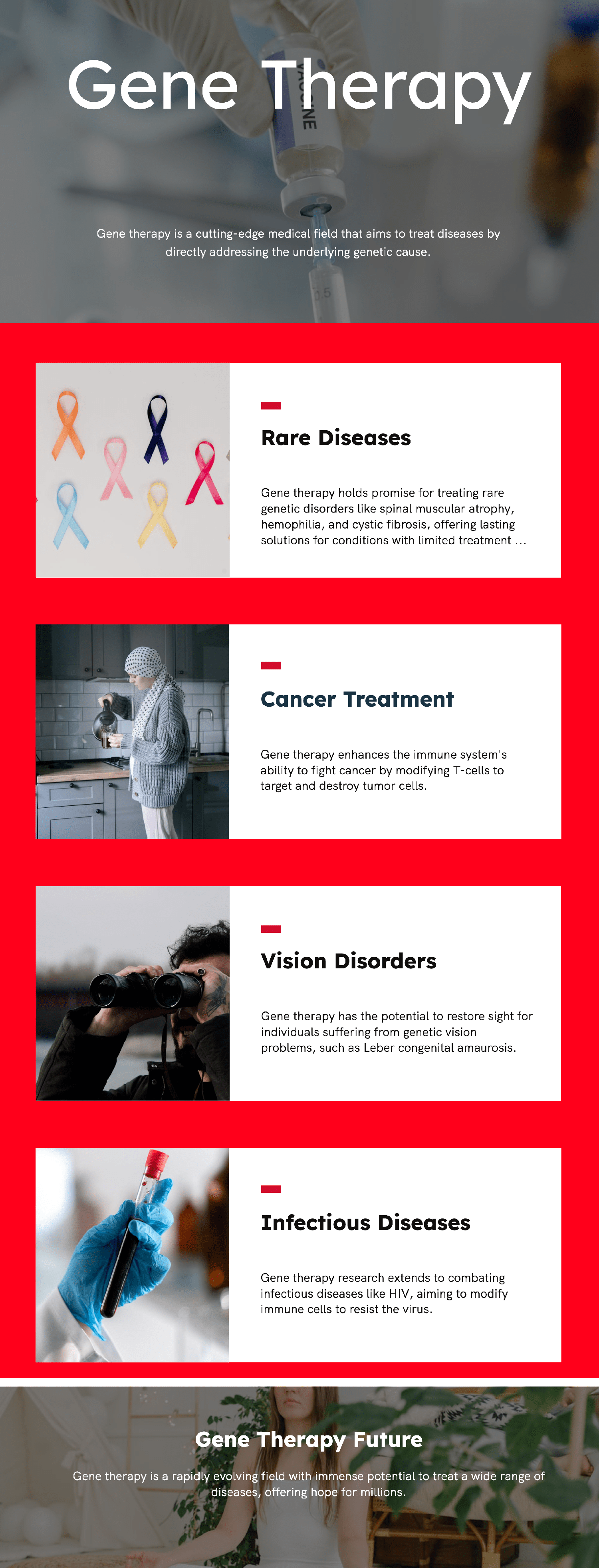 03.12.2024
03.12.2024